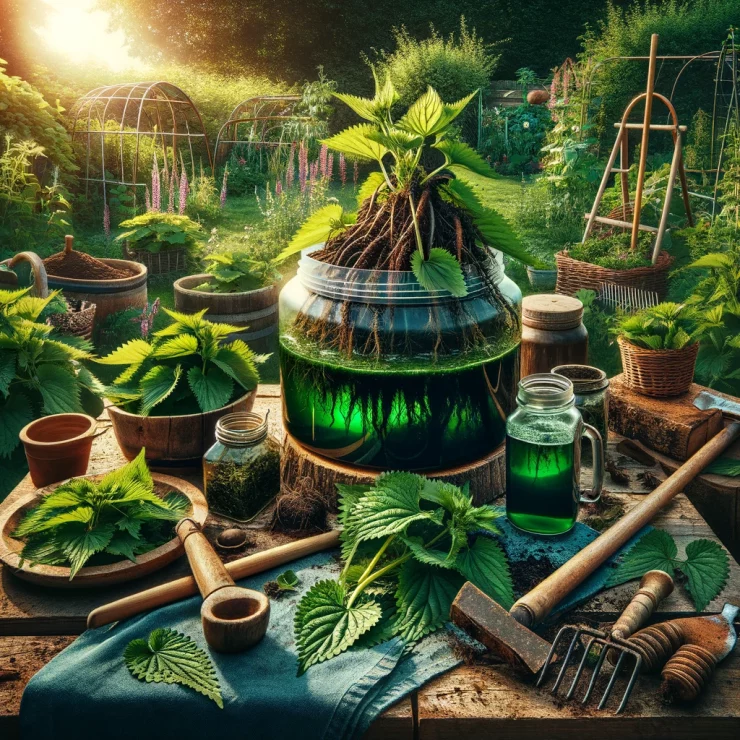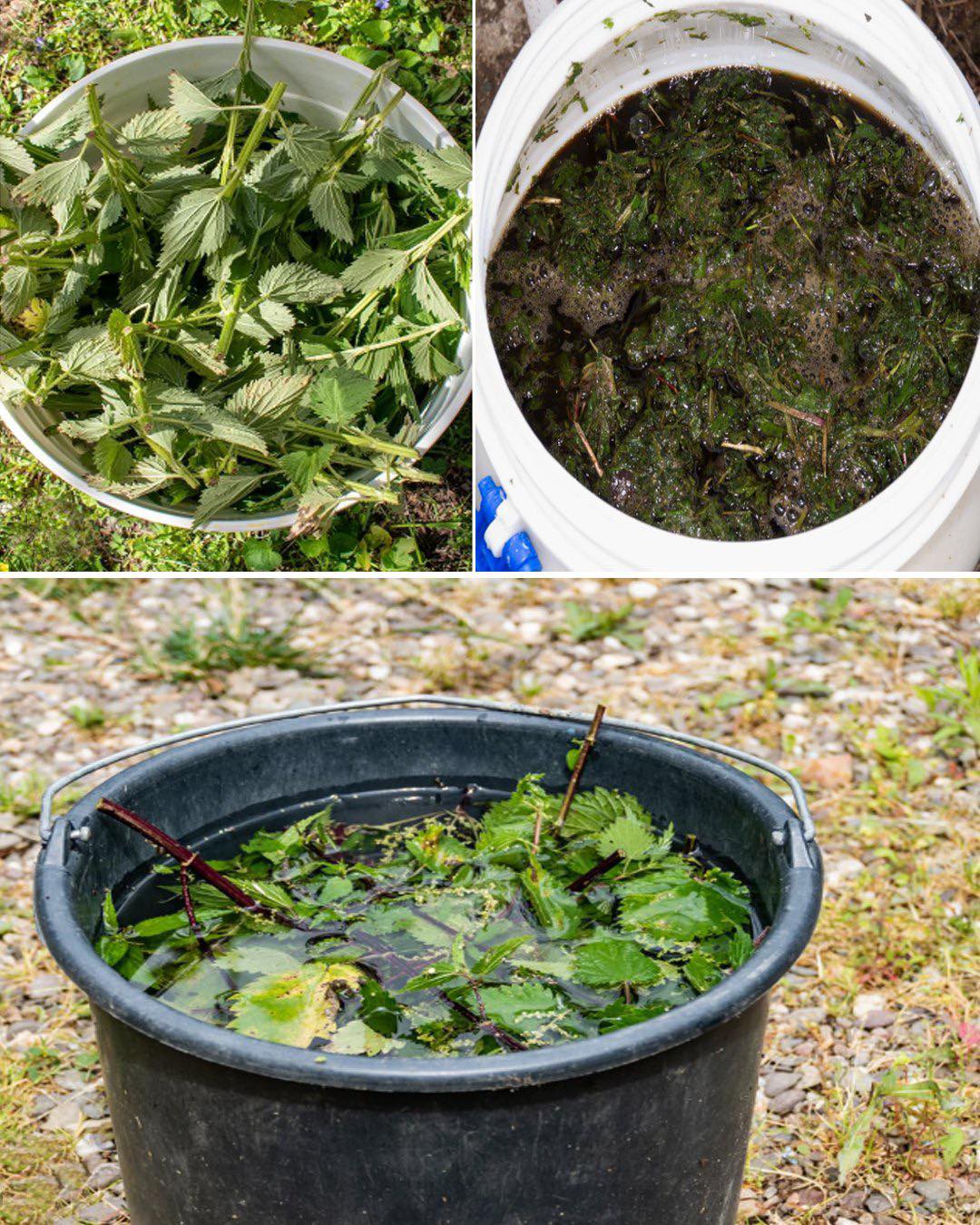In the realm of gardening and plant care, finding natural solutions that are both effective and easy to implement is a constant pursuit for enthusiasts and professionals alike. One such discovery that has gained popularity in recent years is nettle fertilizer tea. This simple yet powerful concoction offers a potent blend of nutrients and insect-repelling properties, making it a valuable asset in any gardener’s toolkit.

The Power of Nettle
Nettle, or Urtica dioica, is a common perennial plant found in many regions around the world. Despite its notorious sting when touched, nettle possesses remarkable qualities that make it an ideal candidate for natural fertilizers and insecticides.
Rich in nitrogen, potassium, calcium, magnesium, iron, and other essential nutrients, nettle leaves provide a nutrient boost to plants, promoting healthy growth and development. Additionally, nettle contains compounds such as formic acid, histamine, and serotonin, which have insect-repelling properties, making it an effective deterrent against pests.
Making Nettle Fertilizer Tea
Creating nettle fertilizer tea is a straightforward process that requires minimal effort and ingredients. Here’s how you can make your own batch:
Ingredients:
Fresh nettle leaves (wear gloves when handling)
Water
Large container or bucket with a lid
Instructions:
Harvest Nettle Leaves: Collect fresh nettle leaves, preferably in the spring or early summer when they are young and vibrant. Be sure to wear gloves to protect your hands from stings.
Prepare the Container: Fill a large container or bucket with water, ensuring there is enough to fully submerge the nettle leaves.
Add Nettle Leaves: Place the nettle leaves into the container of water, pressing them down to fully immerse them.
Cover and Steep: Cover the container with a lid or cloth to prevent debris from entering. Allow the nettle leaves to steep in the water for approximately 2-4 weeks, stirring occasionally.
Strain the Tea: After the steeping period, strain the liquid to remove the nettle leaves, creating a concentrated nettle fertilizer tea.
Dilute and Apply: Dilute the nettle tea by mixing it with water at a ratio of approximately 1 part tea to 10 parts water. Use this diluted solution to water your plants or apply it as a foliar spray.
Benefits of Nettle Fertilizer Tea
Nutrient-Rich: Nettle tea provides plants with a potent dose of essential nutrients, promoting vigorous growth and improved overall health.
Natural Pest Control: The compounds found in nettle act as natural insecticides, deterring pests and reducing the need for chemical interventions.

Cost-Effective: Making nettle fertilizer tea at home is cost-effective and environmentally friendly, utilizing readily available materials and reducing the reliance on store-bought fertilizers and pesticides.
Nettle fertilizer tea is a shining example of the power of nature in providing effective solutions for gardeners. With its nutrient-rich composition and natural insect-repelling properties, this simple brew offers a holistic approach to plant care. By incorporating nettle tea into your gardening routine, you can nourish your plants, deter pests, and cultivate a thriving garden environment, all while embracing the beauty and efficacy of nature’s remedies.
News
JJ Redick reacts to Luka Doncic trade for Anthony Davis
In one of the most jaw-dropping moves of the season, the NBA landscape was rocked by the blockbuster trade involving Luka Dončić and Anthony Davis—a swap that has sent ripples of excitement, disbelief, and heated discussion through the league. Among…
Anthony Davis FULL reaction to trade to Mavericks for Luka Doncic
In a blockbuster move that sent shockwaves through the NBA and left fans reeling, Anthony Davis has been traded to the Dallas Mavericks in exchange for Luka Dončić. In the immediate aftermath of the news, Davis took to the media…
Shaq reacts to Dallas Mavericks wanting Kevin Durant after Luka-AD trade 👀
In the constantly shifting world of the NBA, trade rumors and blockbuster moves are a regular part of the season’s drama. The latest twist has fans buzzing: the Dallas Mavericks have reportedly set their sights on acquiring Kevin Durant in…
Donovan Mitchell FILTHY poster dunk on Kristaps Porzingis 😳
In a game filled with high-intensity moments and jaw-dropping highlights, one play in particular has left fans and analysts buzzing about Donovan Mitchell’s latest display of athleticism. Early in the contest, with the atmosphere already charged by an evenly matched…
Joel Embiid hits go-ahead bucket vs Mavs then chats with Anthony Davis after game
In one of the most thrilling contests of the season, Joel Embiid delivered a clutch performance against the Dallas Mavericks, punctuating the game with a go-ahead bucket that sent the home crowd into a frenzy. The atmosphere in the arena…
D’Angelo Russell game winner as Nets hit two 3’s in 3 seconds to win vs Rockets 😱
In one of the most electrifying moments in recent NBA history, D’Angelo Russell delivered an unforgettable game-winner that left fans and commentators in complete awe. With the Brooklyn Nets locked in a tense battle against the Houston Rockets, the outcome…
End of content
No more pages to load











